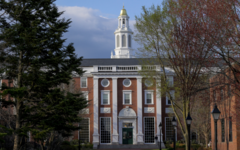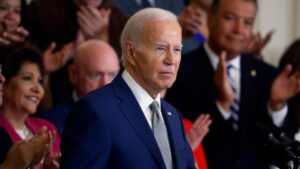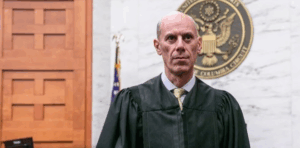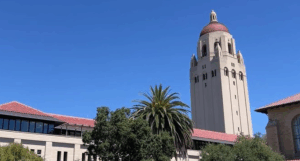In a bold response to the Trump administration's funding freeze, Harvard University has officially launched a lawsuit alleging that the cut-off of federal grants jeopardizes essential research initiatives.
Harvard University Takes Legal Action Against Trump's Funding Freeze

Harvard University Takes Legal Action Against Trump's Funding Freeze
Harvard files lawsuit claiming unlawful federal funding freeze threatens vital research resources.
Harvard University has initiated legal proceedings against the Trump administration, asserting that the decision to freeze billions in federal funding is illegal. This lawsuit was announced by the university's president, Alan M Garber, who emphasized in his letter that the $2 billion funding cut would severely hinder groundbreaking research in areas such as pediatric cancer, Alzheimer's, and Parkinson’s disease.
The cooling of relations began last week when Harvard rejected demands from the Trump administration aimed at overhauling its diversity programs and combating anti-Semitism on campus. The White House, in response to the lawsuit, proclaimed that the "gravy train of federal assistance" was over, as the administration continues to cut funding to several prominent universities.
Harvard's lawsuit contends that the withholding of federal funds represents an infringement on its constitutional rights and constitutes an effort to manipulate academic freedom at the institution. The implications of the funding freeze could also impact Harvard's tax-exempt status and the enrollment of international students—potentially costing the university around $9 billion annually in federal funds.
While acknowledging the existence of anti-Semitism issues on campus, Garber noted that Harvard has been proactive in establishing task forces to tackle these concerns and plans to release the findings from their investigations.
Other elite universities have also felt the heat, with the Trump administration targeting institutions like Cornell University and Brown University by threatening substantial funding cuts. In stark contrast, some universities, such as Columbia, have complied with government demands after facing significant financial threats.
Former President Barack Obama, a Harvard alum, has come to the university's defense, labeling the move to freeze funds as unlawful. In rebuke, the White House stated that taxpayer funds are a privilege not being earned by institutions like Harvard, which allegedly prioritize bureaucratic financial gain over the needs of struggling American families.
As confidence in higher education continues to wane among Americans—especially Republicans—this conflict marks a pivotal moment in the ongoing struggle between federal authority and academic independence. Harvard's lawsuit is set against the backdrop of a growing tension over funding, diversity policies, and the overall direction of higher education in the United States.
The cooling of relations began last week when Harvard rejected demands from the Trump administration aimed at overhauling its diversity programs and combating anti-Semitism on campus. The White House, in response to the lawsuit, proclaimed that the "gravy train of federal assistance" was over, as the administration continues to cut funding to several prominent universities.
Harvard's lawsuit contends that the withholding of federal funds represents an infringement on its constitutional rights and constitutes an effort to manipulate academic freedom at the institution. The implications of the funding freeze could also impact Harvard's tax-exempt status and the enrollment of international students—potentially costing the university around $9 billion annually in federal funds.
While acknowledging the existence of anti-Semitism issues on campus, Garber noted that Harvard has been proactive in establishing task forces to tackle these concerns and plans to release the findings from their investigations.
Other elite universities have also felt the heat, with the Trump administration targeting institutions like Cornell University and Brown University by threatening substantial funding cuts. In stark contrast, some universities, such as Columbia, have complied with government demands after facing significant financial threats.
Former President Barack Obama, a Harvard alum, has come to the university's defense, labeling the move to freeze funds as unlawful. In rebuke, the White House stated that taxpayer funds are a privilege not being earned by institutions like Harvard, which allegedly prioritize bureaucratic financial gain over the needs of struggling American families.
As confidence in higher education continues to wane among Americans—especially Republicans—this conflict marks a pivotal moment in the ongoing struggle between federal authority and academic independence. Harvard's lawsuit is set against the backdrop of a growing tension over funding, diversity policies, and the overall direction of higher education in the United States.





















